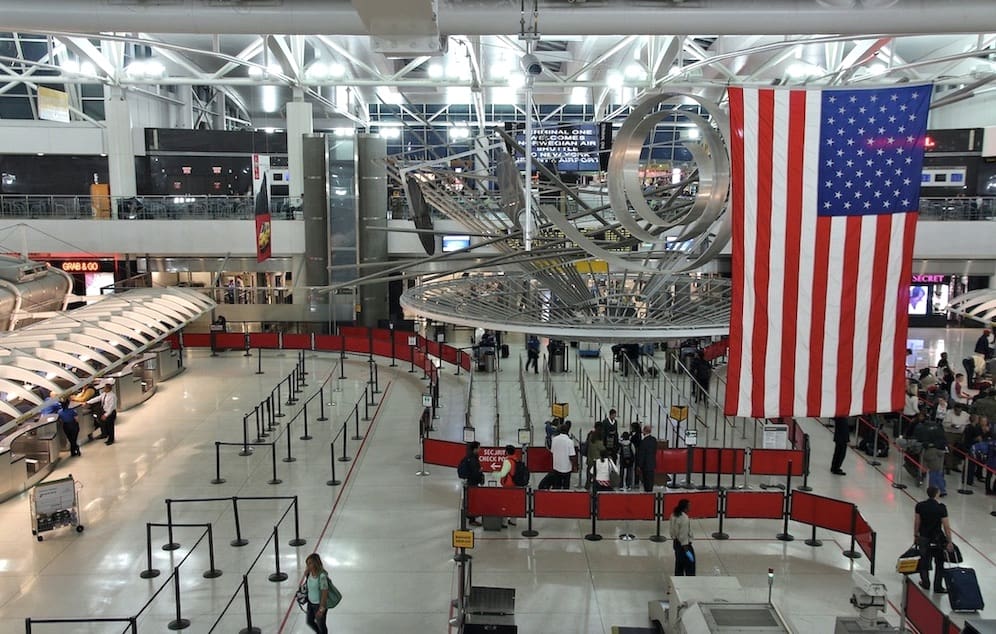With the long-awaited news that the United States will soon end the 18-month travel ban for passengers from the EU, UK, Brazil, and other nations, changes are also coming to entry requirements for all foreign arrivals.

Starting in November, the U.S. will require all international passengers to show proof of being fully vaccinated to gain entry into the country. While the end of the EU travel ban is giving many travelers hope and anticipated entry into the States, the new vaccination clause will once again shut some individuals out. No jab, no entry.
Although the information put forth on the new rules has been somewhat wanting, here is what we know about the changing entry requirements into the U.S. so far.

Proof of being fully vaccinated will be required from all foreign arrivals
All arrivals by air will be required to show proof theyâve been fully vaccinated. Per the CDC, being fully vaccinated is defined as 2 weeks after their second dose in a 2-dose series, such as the Pfizer or Moderna vaccines, or 2 weeks after a single-dose vaccine, such as Johnson & Johnsonâs Janssen vaccine.
The types of vaccines the U.S. will accept is still under review, but itâs expected they will use the types that have been approved for emergency use by the World Health Organization, which include:
- Moderna
- Pfizer
- Johnson & Johnson
- AstraZeneca
- Sinopharm
- Sinovac

Paper copies of proof, like the CDC cards issued in the United States, will be accepted, as well as plans to acknowledge digital apps, like the EUâs Digital Green Certificate.
In addition to proof of vaccination, all foreign arrivals will need to show a negative covid test
The negative test can be a rapid antigen, which is the easiest, cheapest, and fastest type test to obtain. Other approved test types include: NAAT, PCR, LAMP, TMA, NEAR, HAD.
The test must be taken at most 3 calendar days before entry into the U.S. For example: If the passengerâs flight arrives into New York on Sunday, the test can be administered as far out as Thursday.
No quarantine period is in place.

Different rules will apply for foreigners and citizens/residents of the U.S.
While all foreigners will have to show proof of vaccination in order to enter, the same rules will not apply to citizens or legal residents of the United States. The U.S. cannot restrict the entry of a citizen because of vaccination status, but the rules will slightly change for citizens returning home as well. Currently, any citizen/resident of the U.S. coming home must provide a negative test (like a rapid antigen for example), taken no longer than 3 calendar days before entry. Starting in November, the rules will be slightly different, dependent on vaccination status.
U.S. residents/citizens who are fully vaccinated will need to submit proof of vaccination and 3-day pre-flight test. The only thing that changes for this group is showing proof of vaccination before boarding their flight home.
U.S. residents/citizens who are unvaccinated will need to perform their pre-flight test in a very tight window frame of 1 calendar day instead of 3 and perform another test post-arrival. It is unknown if the post-arrival tests will be performed upon arrival at airports, or if it will be up to the individual to source the test and submit it independently.

What are the rules for Canadians entering the U.S. after November
Throughout the pandemic, Canadian citizens and residents have been able to enter the U.S. by air with only a 3-day negative antigen test, as have other nations not affected by the EU travel ban, like Mexico, Japan, etc.
Starting in November, Canadians along with other countries who have never been banned from entering will also have to provide proof of vaccination in addition to the 3-day negative test.

Will proof of vaccination need to be shown at land borders from Mexico and Canada?
The non-essential travel restrictions are still in effect at land border crossings until at least October 21, 2021. It is unknown if they will be removed in November, however, the new proof of vaccination rules are only expected to be in effect for air arrivals.
Will there be medical or religious exemptions for foreigners showing proof of vaccination?
Officials have not issued a statement in regard to exemptions, but if we review the border rules of other nations, we see that religious and medical exemptions do not exist for entry purposes, and therefore highly unlikely for the U.S.
What will entry rules into the U.S. be traveling with children?
Many nations around the world already have some sort of vaccination requirement for entry, and almost all of them make exceptions for children under the age of when they can be legally vaccinated.
The CDC suggests that children over the age of 12 can be safely vaccinated, so the proof of vaccination rules coming in November will likely be for all passengers 12 and over. Â It is unknown at this time if children under the age of 12 traveling with fully vaccinated parents will face any additional restrictions, like increased testing.

To summarize the new entry rules starting in November
- All foreigners entering must show proof of being fully vaccinated, along with a 3-day negative covid test
- American residents/citizens returning home can show proof of being fully vaccinated, along with a 3-day negative covid test
- American residents/citizens returning home who are unvaccinated will be required to provide a 1-day negative covid test, plus get tested again after arrival.
- Contact tracing for foreign arrivals is expected to be put into effect.
We expect official rules and regulations to be released in October 2021.

